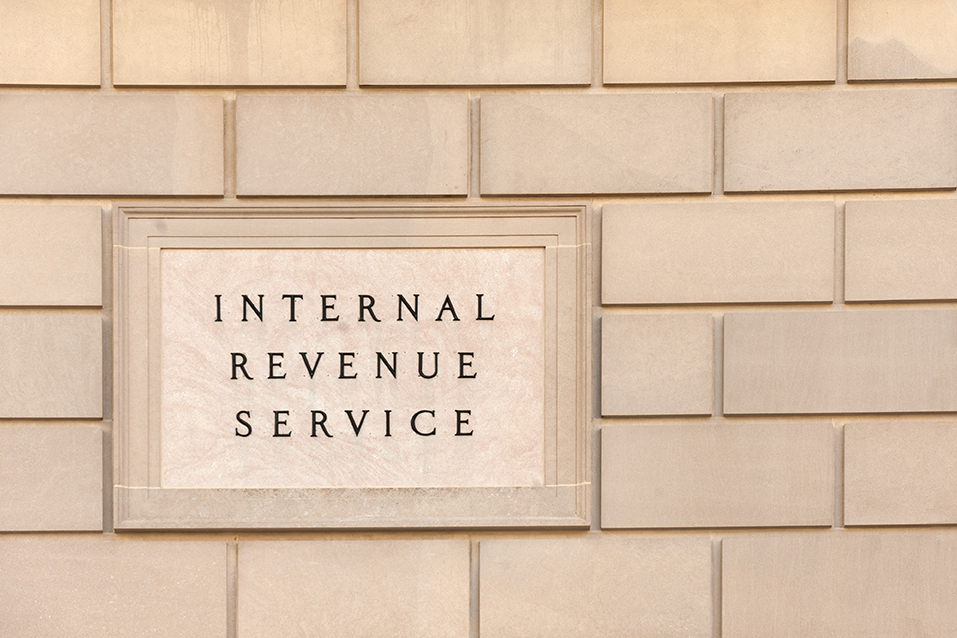May 2020
Tax Relief for US Nonresidents Temporarily Stranded in the US Due to COVID-19
Were you in the US visiting or on short-term business travel when COVID-19 struck? And has your stay been extended as a result? Like many countries, the US has rules about how much time a nonresident can spend in the country before triggering US tax residency. The US’s test of residency, the “Substantial Presence Test,” considers the number of days you have spent in the US over a 3-year period to determine whether you should be a US tax resident, taxable in the US on your worldwide income and subject to “informational disclosures” on your assets outside the US. (Of course, US citizens and green card holders are always considered tax residents, regardless of how many days they spend in the US each year.) If you are a nonresident who is temporarily stranded in the US due to COVID-19, US taxes are the last thing you want to worry about! Fortunately, the US Internal Revenue Service (IRS) recently issued Revenue Procedure 2020-20 to grant tax relief to US nonresidents in this situation. These new rules allow US nonresidents temporarily stranded in the United States due to COVID-19 to claim a “medical travel exception” for the Substantial Presence Test. The requirements to meet this exception are as follows: 1. You must be an “eligible individual,” which means: You were not a US tax resident at the end of calendar year 2019, You will not become a US green card holder at any point in 2020 (if you are seeking to become a lawful permanent resident of the US, then there is no presumption to leave the US), You are present in the US during the “applicable period,” defined as beginning anytime between February 1, 2020, and April 1, 2020 (and lasting up to 60 consecutive days from any date within that window), and You would not be a US tax resident under the Substantial Presence Test based on your US days of presence outside of the “applicable period.” 2. If you are in the US on work, you should provide your employer or withholding agent with IRS Form 8233 to indicate the tax withholding exception. 3. If you are required to file a nonresident tax return (IRS Form 1040NR) for calendar year 2020, then you must also file Form 8843. (Not sure if you need to file a US nonresident tax return? Here are the rules.) Section 5.02 of Revenue Procedure 2020-20 provides the exact details required to complete Form 8843 due to the COVID-19 Medical Condition Travel Exception. Be sure to keep records in support of your claim for 3 years in case of a future audit or examination by the IRS. Note that if you are not required to file a US nonresident tax return for calendar year 2020, then there is no further requirement to file IRS Form 8843. And if you do need to file a nonresident return, Revenue Procedure 2020-20 does not preclude you from alternatively using the Closer Connection Exception or Treaty Tie-Breaker Rules. Under [...]
Business Tax Relief for Foreigners Temporarily Stuck in the US Due to COVID-19
Are you a foreign individual or a foreign business from one of the many countries that the US has a tax treaty with (such as the UK, France, or Australia)? If so, then you may know that you can come to the US and perform certain services for US clients without being taxed in the US. Of course, then you probably also know that certain activities can deny you this privilege by resulting in the creation of a “permanent establishment” (PE) in the US. As such, you are careful not to do anything that would trigger PE and jeopardize your exemption. So, you keep your activities to a minimum. You keep your visits short, And you definitely do not have an office in the US. Then, COVID-19 happens. It wreaks travel (and other) havoc. You have employees stuck in the US, unable to fly home due to travel restrictions. One week goes by, two weeks, three... You are paying these stranded employees. They are still working, and their activities end up crossing the very gray threshold that is PE. Now what? Will you be taxed? On April 21, the IRS issued a short piece entitled, “Information for nonresident aliens and foreign businesses impacted by COVID-19 travel disruptions.” The article conveys: If a nonresident alien or a foreign corporation is engaged in a US trade or business and ordinarily does not have PE But then does indeed create PE as a result of being impacted by COVID-19 travel disruptions Then, those activities that created PE will be ignored. This assumes the person or business is from a country that has a tax treaty with the US. So, what about a foreign individual or business who is not from a treaty country but is temporarily stranded in the US? The IRS addresses this, too. Generally, a nonresident alien or foreign corporation from a non-treaty country that is engaged in a US trade or business is taxable on its business income connected to that US trade or business. This happens regardless of whether they have PE. If the person is temporarily in the US and considered to be engaged in a US trade or business that they otherwise would not have been engaged in, then they may be exempted from tax for the 60-day calendar period originating between February 1, 2020, and April 1, 2020. Foreign individuals and businesses that fall within these parameters should document their positions by submitting “protective filings” to the IRS. These are, essentially, tax returns claiming exemption from tax. The returns would need to be filed in early 2021 for the 2020 US tax year. And they serve several purposes: First, they make the IRS aware of the foreign individual or business in the US, and its intent to be honest and forthcoming with its US activity. Second, if the foreigner is ever audited and the IRS determines that they did not qualify to be exempt, the IRS will tax the revenues, but it will also allow deductions [...]
IRS seeks consultants to help with cryptocurrency audit capabilities.
The IRS issues a statement of work request for consultants to assist with virtual currency examination, similar to the HMRC contract on January 17, 2020.
April 2020
The IRS Tends To “Bury” High-Stakes Questions in Individual Tax Returns
Most people are unaware that the IRS tends to “bury” high-stakes questions in individual tax returns. Yet a different approach could benefit and protect taxpayers. Did you even notice an additional question on the 2019 US Individual Income Tax Return (Form 1040)? The IRS recently introduced a “Yes or No” question related to virtual (crypto) currency on Schedule 1. It is listed at the top of the form and says, “At any time during 2019, did you receive, sell, send, exchange, or otherwise acquire any financial interest in any virtual currency?” The response choice is either yes or no, and all tax software automatically presets the answer to “no.” Why Is This an Issue? The IRS includes a number of different informational questions on the tax return. The consequences for missing or incorrectly answering these questions can range from minimal to criminal. There are typically three categories of informational questions: 1. Some are benign or merely helpful for tracking. One example is the new question at the top of Schedule D for Qualified Opportunity Zones, “Did you dispose of any investment(s) in a qualified opportunity fund during the tax year?” 2. Some questions can create income tax consequences if not appropriately answered. One example is all the new questions on the Schedule K-1. 3. Other questions, if not appropriately answered, could create serious tax liability through civil and criminal penalties. One such example is found on Schedule B Part III, which includes two questions related to foreign bank accounts and financial asset reporting: US citizens and residents who have an interest in, or signature authority over, a financial account in a foreign country with assets in excess of $10,000 are required to disclose the existence of such account on Schedule B, Part III, of their individual income tax returns. Failure to do so can be construed as “willful” behavior triggering the more significant penalty regime, as opposed to non-willful behavior, triggering lower civil penalties. The new question on Schedule 1 related to cryptocurrency also falls in this category and could result in criminal charges or willful penalties. If taxpayers miss it or inadvertently leave it as the default “no” when they do indeed own cryptocurrency or have cryptocurrency transactions, then the IRS could later claim that they fraudulently or willfully hid their taxable income from cryptocurrency. As you can see, these questions are hidden in the forms listed in small print and can be difficult for the layperson to interpret. A more effective and just approach would be for the IRS to produce an independent informational schedule that has simple, straightforward questions, written in large bold font, with helpful explanations that do not default automatically to “no” on tax software. If the answers to these questions directly correspond to significant penalties and perhaps even criminal liability, then taxpayers must be forced to read through them in full and answer them affirmatively. Here is our example of the questions that should be asked: Schedule IQ (Informational Questions) 1. In 2019, did [...]
Stimulus Payments for Individuals with International Matters
As reported widely in the news, The Coronavirus Aid, Relief, and Economic Security (CARES) Act was signed into law on March 27, 2020. The law introduced “economic impact payments” that were applicable to individuals and businesses. Although many Americans are eligible for these “economic impact payments” (aka “stimulus payments”), the rules are a bit more complex for individuals with international matters. If you are a US expat or inpat, how can you tell whether you are eligible to receive a stimulus payment? And if you are eligible, how much can you expect? Here, we summarize the most important provisions for individuals with cross-border situations. Eligible Individuals Individuals who are eligible for stimulus payments include US citizens, green card holders, and resident aliens who have a Social Security Number (SSN) that is valid for employment. This includes individuals who live outside the US. However, it does not include individuals who can be claimed as a dependent on another eligible individual’s tax return. Ineligible Individuals Individuals are NOT eligible for stimulus payments if they are nonresident aliens or individuals residing in the US on certain visas that make their days exempt from the US Substantial Presence Test of residency (e.g., G-4, F-1, and J-1 visas). Also, if an eligible individual files jointly with a spouse who has an Individual Taxpayer Identification Number (ITIN), the ITIN spouse will not be considered an eligible individual. Eligible Payment Amounts Eligible individuals can receive up to $1,200 per person ($2,400 if Married Filing Jointly). Eligible individuals can also receive an additional $500 per each qualifying child claimed as a dependent on their tax return. Eligible Payment Phase-Outs Stimulus payments are available so long as your “adjusted gross income” per your tax return doesn’t exceed certain thresholds (the lower end or the ranges below). In addition, you may qualify for a reduced payment amount if your adjusted gross income falls within the ranges. Payments are not available if you earned above the higher end of the range: $75,000 and $99,000 – Single filers $150,000 and $198,000 – Married Filing Joint filers The thresholds increase by $10,000 for each additional qualifying child. For example: $109,000 – Single filers + one qualifying child $208,000 – Married Filing Jointly + one qualifying child Qualifying Children To be a qualifying child, the individual must: Be claimed as a dependent on the tax return Be under the age of 17 (i.e., 16 or younger) Be a US citizen, green card holder, or resident alien Have a valid SSN or Adoption Taxpayer Identification Number (ATIN) How the IRS Will Deliver Payments The Internal Revenue Service (IRS) will use either your 2018 or 2019 Individual Income Tax Return details to calculate your payment. Then, if you have previously provided the IRS with your banking information, it will direct deposit the payment to your bank account. If you want to update your banking information or provide that information to the IRS, you can use this link. If you have not provided your banking information and [...]
IRS Extends More Deadlines and Reverses Stance on Deadline for International Forms
With the progression of COVID-19 in the US, the IRS and states have scrambled to provide relief to taxpayers. Over the past few weeks, each day has brought new developments. Most recently, the IRS has extended more deadlines and reversed stance on a deadline for international forms. IRS Early Actions Were Problematic Early actions were problematic because they extended some tax deadlines but not others. In a succession of COVID-19-related actions in March, the IRS: Extended the deadline for filing and payment of federal (not state) taxes from April 15th to July 15th for tax returns that normally have a due date of April 15th (IRS Notice 2020-18) Provided the same relief for filers of gift tax returns and payment of gift tax and generation-skipping (GST) tax (IRS Notice 2020-20) Released a set of Frequently Asked Questions (FAQs) about these notices While these actions extended IRS deadlines for 2019 individual tax returns and certain other items, they initially did NOT extend the deadlines for: State tax returns, state tax payments, and state quarterly estimated payments (each state has separately issued guidance on whether they have extended these) 2020 quarterly estimated tax payments due June 15, 2020 Nonresident tax returns (Forms 1040NR), due June 15, 2020 Certain informational forms that are typically filed as part of the Form 1040 individual income tax return, such as forms required to report ownership of certain foreign assets Various other tax returns and payments It Initially Appeared Many International and Informational Forms Were Not Extended When the IRS released the FAQs to clarify the items NOT extended, it appeared that many international and informational forms (usually included with the Form 1040) were NOT extended. Under FAQ 10, the IRS specifically exempted informational reports from the extension relief. The tax practitioner community raised concerns with this FAQ as it could be interpreted to mean that international informational reports (Forms 3520, 5471, 5472, 8621, 8858, 8865, and 8938) that were tied to the individual income tax return were not included in the relief. Since the publication of these notices and FAQs, certain tax practitioners have adopted a conservative approach of filing the Form 4868 extension to extend the individual income tax return and in turn all associated international informational reports to October 15, 2020. IRS Issues New Guidance Fortunately, the IRS released new guidance on April 9 to extend the deadlines to file informational reports (a reversal of FAQ 10) and extend many other items, as well. On April 9, 2020, the IRS published Notice 2020-23. Among other items, this new guidance extends the deadline for: IRS 2020 2nd quarter estimated tax payments originally due June 15 (now due July 15, 2020) Nonresident tax returns (Forms 1040NR) originally due June 15 (now due July 15, 2020) Domestic informational reports, such as Schedule H, for employers of household employees Elections that occur within the tax return, such as the 6013(g) and 6013(h) elections, to allow nonresidents to file jointly with resident spouses or as full-year residents International informational [...]
IRS considers making cryptocurrency FAQs authoritative.
The IRS indicates it will consider converting frequently asked questions (FAQs) on cryptocurrency transactions into “binding” guidance.
Digital asset industry requests further IRS guidance on reporting obligations.
The Digital Chamber of Commerce issues a letter to the IRS requesting guidance on the information reporting obligations of the digital asset industry, saying that current guidance fails to provide adequate information on how businesses should comply and that clearer guidance would benefit both the IRS and the industry.
March 2020
May 29 Deadline for Reporting of Foreign Real Estate, Self-Employment Abroad, and Foreign Business Activity|Form BE-10
Form BE-10 is due May 29, 2020. Never heard of it? That’s because it’s only required every five years, and it is NOT a tax form, so it’s not widely discussed. So, why are we alerting you to it? Because like many of the foreign forms we deal with, it carries penalties of $25,000 and up to one year in prison. Also, since it’s not a tax form, it doesn’t fall under the IRS, and it isn’t covered by the COVID-19 filing extensions. Instead, it’s a survey issued by the Bureau of Economic Analysis (BEA), which is the agency of the US Department of Commerce that tracks statistics, such as the US gross domestic product. The BEA just released the requirements, due date, and other details of this year’s filing. Purpose Form BE-10 is required by the Bureau of Economic Analysis and is used to collect comprehensive statistics on US direct investment abroad. It is not a tax form and will not be used for tax purposes. Authority The information requested is authorized by the President and Congress pursuant to the notification provided in the Federal Register and is mandatory. Penalties for failure to comply are provided. Who Must File A BE-10 report is required for those involved in any of the following at any time during 2019: US owners of foreign real estate held as a rental or for investment. US owners can include individuals, businesses, trusts, estates, and other legal organizations. US owners of foreign businesses. This includes US individuals, businesses, trusts, estates, and other legal organizations that conduct for-profit activities outside of the US and that own or have the voting authority of 10% or more of a foreign business. The foreign business can be incorporated or unincorporated. US self-employed individuals who perform consulting services or conduct for-profit activities outside the US. Generally, this applies to self-employed US persons who live and work outside the US or who have business assets or office space outside the US. Clarifications on Filing Requirements The filing requirement applies to both direct and indirect ownership interests. So, if you own a company through your LLC, you are not necessarily exempt from filing. In certain situations, one US owner may be allowed to file on behalf of others rather than all owners being required to file. Alternatively, a US owner may choose to report only his or her data, if that owner prefers not to obtain data about the other owners. A US owner who wholly owns a foreign entity that owns another foreign entity may be able to consolidate all activity of the two foreign entities. Penalties Penalties for failure to report range from $2,500 to $25,000 and injunctive measures can be invoked to force compliance. Willful failure to report can also carry a penalty of up to one year in prison. An officer, director, employee, or agent of the US reporter is also subject to the same civil penalties. Due Date May 29, 2020 Filing Requirement Every 5 years [...]
Seasonal Tax Professionals
Summary: TWG is always interested in speaking to individuals seeking seasonal tax positions who are eager to gain exposure to a broad range of technical issues that apply to individuals, families, and businesses with cross-border interests. TWG is also searching for individuals who embrace TWG’s values and consistently provide solutions for clients and colleagues. About the Job CHALLENGE: Prepare/review tax returns for World Bank employees, expatriate executives, employees of international organizations (IMF, IDB, United Nations, etc.), globally mobile entrepreneurs, and families with global assets. GROWTH: We are seeking professionals who are looking for a long-term relationship with our firm. SCHEDULE: This is a recurring seasonal role, dedicated to serving clients during the spring tax season (late January to April 15) and fall tax season (optional). Hours start at 20-30 hr/wk in January and ramp up to 45+ hr/wk (45-60, depending on individual agreements) in March and early April. Part-time, hourly work may also be available for interested individuals between April 15 and October 15. PROFESSIONAL DEVELOPMENT: The position kicks off in mid-January with extensive training and onboarding, culminating in an all-staff annual training week at the end of January. We conduct ongoing training year-round. LOCATION: The position is based in TWG’s Fairfax, VA, office, although remote work arrangements could be considered for professionals with the right experience. About You You are energized by the prospect of stimulating work You love tax and have a solid foundation in individual tax compliance (and knowledge of at least one other area of tax, as well—e.g., corporate, partnership, gift/estate, or trust) You are a seasoned professional who interacts comfortably with intelligent, successful (although not always tax-savvy) individual tax clients Although you may have worked full-time year-round in the past, you now appreciate a flexible schedule that allows for reduced (or no) hours outside of spring tax season Your superior organizational and project management skills enable you to skillfully manage complex projects with multiple moving parts What You’ll Do You will be part of a team that prepares (mostly) individual tax returns with many interesting foreign elements, each of which introduces a puzzle and variety into the tax preparation process. Common forms and schedules include Form 1116, 2555, 8938, 8621, 3520, 3520-A, 5471, 8865, 8833, 926, 965, 1040NR, and 8288-B. Primary activities: Prepare/review U.S. individual tax returns for U.S. residents, expatriates, and foreign nationals with diverse financial interests. Prepare/review certain entity returns, as needed (e.g., partnerships, corporations, trusts—depending on technical experience) Learn continuously about nuances in the tax treatment of individuals with foreign assets and income Deliver a high level of client service by communicating directly with clients to manage expectations, explain tax implications, obtain missing information, and strengthen client relationships Set and adjust priorities daily, in line with project load, new information received, budget and deadline requirements, and client satisfaction considerations Your Background and Qualifications: Bachelor’s or Master’s degree and CPA, JD, or EA 3 to 10+ years of U.S. tax compliance experience with a public accounting firm, with a focus on private client services or high-net-worth individuals [...]
Kraken, Coinbase, and other exchanges speak with IRS on problems with 3rd party reporting.
Representatives of cryptocurrency exchanges urge IRS officials to find a balanced approach to requiring third-party reporting of cryptocurrency transactions.
February 2020
IRS maintains that earlier cryptocurrency guidance does not require further clarification.
At the annual International Fiscal Association US branch meeting in Boston, IRS representatives are pressed for clearer answers about some aspects of its cryptocurrency revenue ruling (2019-24). The IRS maintains that the guidance “speaks for itself.”
US accounting organization formally requests more IRS guidance on cryptocurrency.
The American Institute of Certified Public Accountants (AICPA) drafts a letter to the IRS to ask for clarity on the taxation of virtual currency guidance.
IRS Targeting High-Income Earners
The IRS is hitting the road, targeting high-income earners who haven’t filed federal income tax returns or paid taxes for 2018 or previous years. The agency estimates that billions are lost in tax dollars from these non-filers. The goal is to collect and the IRS intends to do this through personal visits. The visits, part of a campaign known as “High Def,” are unscheduled and unannounced but come after multiple IRS notices which received no response. Approximately 800 visits are planned over the next two months, with thousands more likely throughout 2020. There is no specific geographic area. https://www.youtube.com/embed/QlCIHi613mo When Did This Go into Effect, and Who Does the IRS Consider “High-Income”? The official notice of this program was made on February 19, 2020 (Bulletin (IR) 2020-34). The bulletin alerted taxpayers that the IRS has recognized that there is a substantial underreporting of tax returns and tax due for individuals making more than $100,000 of income. The IRS issued the following facts and figures from the fiscal year 2018 to support its claim: 4 million taxpayers failed to file a tax return for 2018 8 million are businesses 6 million are individuals Individual non-filers account for a tax loss of $37.5 billion To deal with this issue, the IRS will use data analytics methods normally reserved for its Criminal Investigations Division The data analytics will trigger a list of taxpayers who make more than $100,000. This list will be assigned to the IRS Collections Division. An IRS Revenue Officer (RO) will then be required to make a “face-to-face” visit with the taxpayer. For non-filers with foreign income and asset reporting issues, the IRS is coordinating this domestic “High-Def” program with its “High-Income Non-Filer” International Active Campaign. The Goal is to Promote Filing of Returns—Penalties May Range from Fees to Prison Time The primary goal of the High Def program is to bring the taxpayer into compliance for un-filed tax returns and unpaid tax. However, the RO has the discretion to assess late-payment and late-filing penalties for all years within the Statute of Limitations that have not been filed. The RO also has the discretion to refer the taxpayer for criminal investigation under Internal Revenue Code (IRC) Section 7203. This section of the code allows the IRS to prosecute taxpayers for failing to file tax returns with a penalty of $25,000 and up to one year in prison. For multiple years or a pattern of non-filing, the IRS can increase the prison sentence recommendation for up to five years. If You Have Procrastinated in Filing Your Returns, What Can You Do? In general, you can minimize any serious consequences by voluntarily fixing your situation before the IRS targets you. The IRS is urging taxpayers who have domestic tax issues to use the IRS Voluntary Disclosure Program or an equivalent program depending on their facts and circumstances. For taxpayers with unreported foreign income or assets, you should consider one of the various IRS Offshore Amnesty Programs, such as Streamlined Filing. The use [...]
2019 Entity Tax Return Engagement Letter
Dear Client: We look forward to providing you with tax services this year! This correspondence is to confirm and specify the terms of our engagement and to clarify the nature and extent of the services we will provide. This “Engagement Letter” and the attached “Engagement Terms” are collectively referred to as the “Agreement”. Returns Covered under the Engagement Our engagement will be designed to perform the following services: Prepare the 2019 U.S. federal and state income tax returns with all required accompanying forms, statements, and schedules from information that you will provide to us. Perform the necessary bookkeeping for preparation of the income tax returns. Our work in connection with the preparation of your income tax returns does not include any procedures designed to discover defalcations or other irregularities, should any exist. However, should we find any irregularities or unusual items; we will bring them to your attention. Management is responsible for the proper recording of transactions in the books of accounts, for the safeguarding of assets, and for the substantial accuracy of the financial records. You have the final responsibility for the income tax returns and, therefore, you should carefully review them before you sign and file them. Information Gathering and Submittal Process You are responsible for fully and accurately disclosing to us all relevant facts affecting your returns. We have also enclosed our “Entity Questionnaire”. Your answers to these questions will help us have a better understanding of your tax situation for 2019. Please be sure to complete this questionnaire and return it to us with your 2019 tax information. We will not audit or otherwise verify the information you provide us; however, we may ask for additional clarification of some information. You should maintain the documentation necessary to support the data used in the preparation of your tax returns should you be required to produce them upon examination by the taxing authorities. Client Due Diligence We will provide you with guidance on the timeline for submitting your tax information to us. It is your responsibility to provide your complete tax information to us in a timely manner so that we can prepare your tax returns in time for you to file them by the due dates. You also have the final responsibility for the tax returns, and therefore, once you receive them, you should carefully review the returns (to determine that there are no omissions or misstatements) before signing them and submitting them to the tax authorities. Fees Fees for our tax return preparation services are generally charged upon the completion of the tax returns. Alternatively, fees may be charged monthly, at the discretion of The Wolf Group, as progress is made. Our services will conclude upon delivery of the completed tax returns or upon our withdrawal from the engagement, if earlier. Fees are considered earned when payment is received, or services provided in support of the engagement, whichever is earlier. Invoices are due and payable on presentation. Past due balances may be subject to finance and [...]
2019 Fiduciary Tax Return Engagement Letter
Dear Client: We look forward to providing you with tax return preparation services this year! The purpose of this letter and attached “Additional Engagement Terms” is to specify the terms of our engagement and clarify the nature and extent of the services we will provide. This way, you know what to expect from us, and we can endeavor to delight you with high-quality, seamless services. We strive to make our tax return process as straightforward and convenient as possible for you. Our goal is to minimize any hassle on your end while also making things as efficient as possible on our end. This allows us to deliver your returns expediently, while also bringing to bear a high level of technical expertise and personal service. It also helps us keep our costs down for all clients. Returns Covered under the Engagement With this letter, you are engaging us to prepare your 2019 U.S. and resident state Fiduciary income tax returns. We will do so with the information you furnish to us in the process described below. If you have taxable income or loss in a state or locality other than your resident state, please let us know, and we would be pleased to prepare the required nonresident state tax return(s). In addition, you may have a filing requirement or tax liability in a foreign country. Generally, you are responsible to determine whether you must file and pay taxes in a foreign country; however, upon request, we would be pleased to assist you in making these determinations. Information Gathering and Submittal Process You are responsible for fully and accurately disclosing to us all relevant facts affecting your returns. To help you assemble the information needed for your returns, we will provide you with a questionnaire, organizer, and/or other document requesting specific information. Once your information is assembled and organizers/questionnaires are complete, you will submit your complete information to us. Please know that failure to provide information via completed questionnaires and organizers may require an extraordinary effort on our part, which may be reflected in our fee for service. We will not audit or otherwise verify the information you provide us; however, we may ask for additional clarification of some information. You should maintain the documentation necessary to support the data used in the preparation of your tax returns should you be required to produce them upon examination by the taxing authorities. Client Due Diligence The filing deadline for the tax returns is April 15, 2020. It is your responsibility to provide your complete tax information to us in a timely manner so that we can prepare your tax returns in time for you to file them by the due dates. You also have the final responsibility for the tax returns, and therefore, once you receive them, you should carefully review the returns (to determine that there are no omissions or misstatements) before signing them and submitting them to the tax authorities. To meet these deadlines, you should send us your complete tax [...]
2019 Fiduciary Tax Return Engagement Letter (pnr)
Dear Client: We look forward to providing you with tax return preparation services this year! The purpose of this letter and attached “Additional Engagement Terms” is to specify the terms of our engagement and clarify the nature and extent of the services we will provide. This way, you know what to expect from us, and we can endeavor to delight you with high-quality, seamless services. We strive to make our tax return process as straightforward and convenient as possible for you. Our goal is to minimize any hassle on your end while also making things as efficient as possible on our end. This allows us to deliver your returns expediently, while also bringing to bear a high level of technical expertise and personal service. It also helps us keep our costs down for all clients. Returns Covered under the Engagement With this letter, you are engaging us to prepare your 2019 U.S. and resident state Fiduciary income tax returns. We will do so with the information you furnish to us in the process described below. If you have taxable income or loss in a state or locality other than your resident state, please let us know, and we would be pleased to prepare the required nonresident state tax return(s). In addition, you may have a filing requirement or tax liability in a foreign country. Generally, you are responsible to determine whether you must file and pay taxes in a foreign country; however, upon request, we would be pleased to assist you in making these determinations. Information Gathering and Submittal Process You are responsible for fully and accurately disclosing to us all relevant facts affecting your returns. To help you assemble the information needed for your returns, we will provide you with a questionnaire, organizer, and/or other document requesting specific information. Once your information is assembled and organizers/questionnaires are complete, you will submit your complete information to us. Please know that failure to provide information via completed questionnaires and organizers may require an extraordinary effort on our part, which may be reflected in our fee for service. We will not audit or otherwise verify the information you provide us; however, we may ask for additional clarification of some information. You should maintain the documentation necessary to support the data used in the preparation of your tax returns should you be required to produce them upon examination by the taxing authorities. Client Due Diligence The filing deadline for the tax returns is April 15, 2020. It is your responsibility to provide your complete tax information to us in a timely manner so that we can prepare your tax returns in time for you to file them by the due dates. You also have the final responsibility for the tax returns, and therefore, once you receive them, you should carefully review the returns (to determine that there are no omissions or misstatements) before signing them and submitting them to the tax authorities. To meet these deadlines, you should send us your complete tax [...]
2019 Individual Tax Return Engagement Letter
Dear Client: We look forward to providing you with tax return preparation services this year! The purpose of this letter and attached "Additional Engagement Terms" is to specify the terms of our engagement and clarify the nature and extent of the services we will provide. This way, you know what to expect from us, and we can endeavor to delight you with high-quality, seamless services. We strive to make our tax return process as straightforward and convenient as possible for you. Our goal is to minimize any hassle on your end while also making things as efficient as possible on our end. This allows us to deliver your returns expediently, while also bringing to bear a high level of technical expertise and personal service. It also helps us keep our costs down for all clients. Returns Covered under the Engagement With this letter, you are engaging us to prepare your 2019 U.S. and state income tax returns. We will do so with the information you furnish to us in the process described below. If you have taxable income or loss in a state or locality other than your resident state, please let us know, and we would be pleased to prepare the required nonresident state tax return(s). In addition, you may have a filing requirement or tax liability in a foreign country. Generally, you are responsible to determine whether you must file and pay taxes in a foreign country; however, upon request, we would be pleased to assist you in making these determinations. Information Gathering and Submittal Process You are responsible for fully and accurately disclosing to us all relevant facts affecting your returns. To help you assemble the information needed for your returns, we will provide you with a questionnaire, organizer, and/or other document requesting specific information. Once your information is assembled and organizers/questionnaires are complete, you will submit your complete information to us. Please know that failure to provide information via completed questionnaires and organizers may require an extraordinary effort on our part, which may be reflected in our fee for service. We will not audit or otherwise verify the information you provide us; however, we may ask for additional clarification of some information. You should maintain the documentation necessary to support the data used in the preparation of your tax returns should you be required to produce them upon examination by the taxing authorities. Client Due Diligence We will provide you with guidance on the timeline for submitting your tax information to us. It is your responsibility to provide your complete tax information to us in a timely manner so that we can prepare your tax returns in time for you to file them by the due dates. You also have the final responsibility for the tax returns, and therefore, once you receive them, you should carefully review the returns (to determine that there are no omissions or misstatements) before signing them and submitting them to the tax authorities. Support for Examinations by Tax Authorities Not every [...]
IRS dismisses concerns regarding cryptocurrency question on individual tax return.
IRS Commissioner Rettig indicates that commentators have overanalyzed the checkbox on Schedule 1 of Form 1040. Practitioners respond by saying the uncertainty of what constitutes a “financial interest” in virtual currency could expose taxpayers to willful conduct claims if they incorrectly answer.
IRS clarifies tax treatment of currencies earned in video games.
The IRS updates the cryptocurrency FAQs to indicate that taxpayers who buy or earn video game currencies do not have to report those transactions if the currency is used only within the game.
Pat Haas
Areas of Expertise International Organization Employee Taxation Certifications/Credentials CPA, Licensed in Maryland Education BA, Economics, University of North Carolina at Chapel Hill Graduate Courses in Economics, Duke University Languages Spoken English Senior Tax Specialist Pat is a CPA and Senior Tax Specialist at The Wolf Group, with more than 30 years of experience in individual and expatriate taxation. She is an expert in international organization taxation, including tax policies and practices at The World Bank and International Monetary Fund. Prior to joining The Wolf Group in 2009, Pat worked within The World Bank’s internal tax department for 13 years, advising international organization employees and retirees on their tax treatments, allowances, reimbursements, and tax options after retirement. She also led Bank seminars, such as The World Bank on Overseas Assignment and Income Tax Matters. Over the years, Pat has worked with employees and retirees of a wide variety of international organizations, including the World Bank (IBRD), International Monetary Fund (IMF), Inter-American Development Bank (IDB), United Nations (UN), Asian Development Bank (ADB), Organisation for Economic Cooperation and Development (OECD), Pan-American Health Organization (PAHO), and International Food Policy Research Institute (IFPRI). As a result, Pat is well-versed in the nuances of international organization taxation, including the treatment of U.S. citizens, green card holders, G-4 and G-5 visa holders, contractors, employees, and retirees, for a wide variety of organizations. When not at work, Pat enjoys traveling, plays, and cooking.
Anjana Jain
Areas of Expertise Taxation Accounting Certifications/Credentials Certified Chartered Accountant (India) Certified Information System Auditor (India) Education Bachelor of Science (BSc.) from India Languages Spoken English Hindi Senior Tax Specialist Anjana is a Senior Tax Specialist at The Wolf Group, with 20 years of experience in the global tax and accounting industries. She provides specialized US tax services to clients with international concerns, including US nonresidents, high-net-worth individuals with global assets, and international organization employees and retirees. In this capacity, Anjana assists U.S. citizens, green card holders, and foreign nationals with their individual income tax matters. Before joining The Wolf Group, Anjana worked with public accounting firms in India, in the field of taxation, accounting, and auditing. She also worked as a volunteer with VITA (Voluntary Income Tax Assistance) in US. Outside of work, Anjana enjoys traveling, watching movies, cooking, and spending time with her family and friends.










